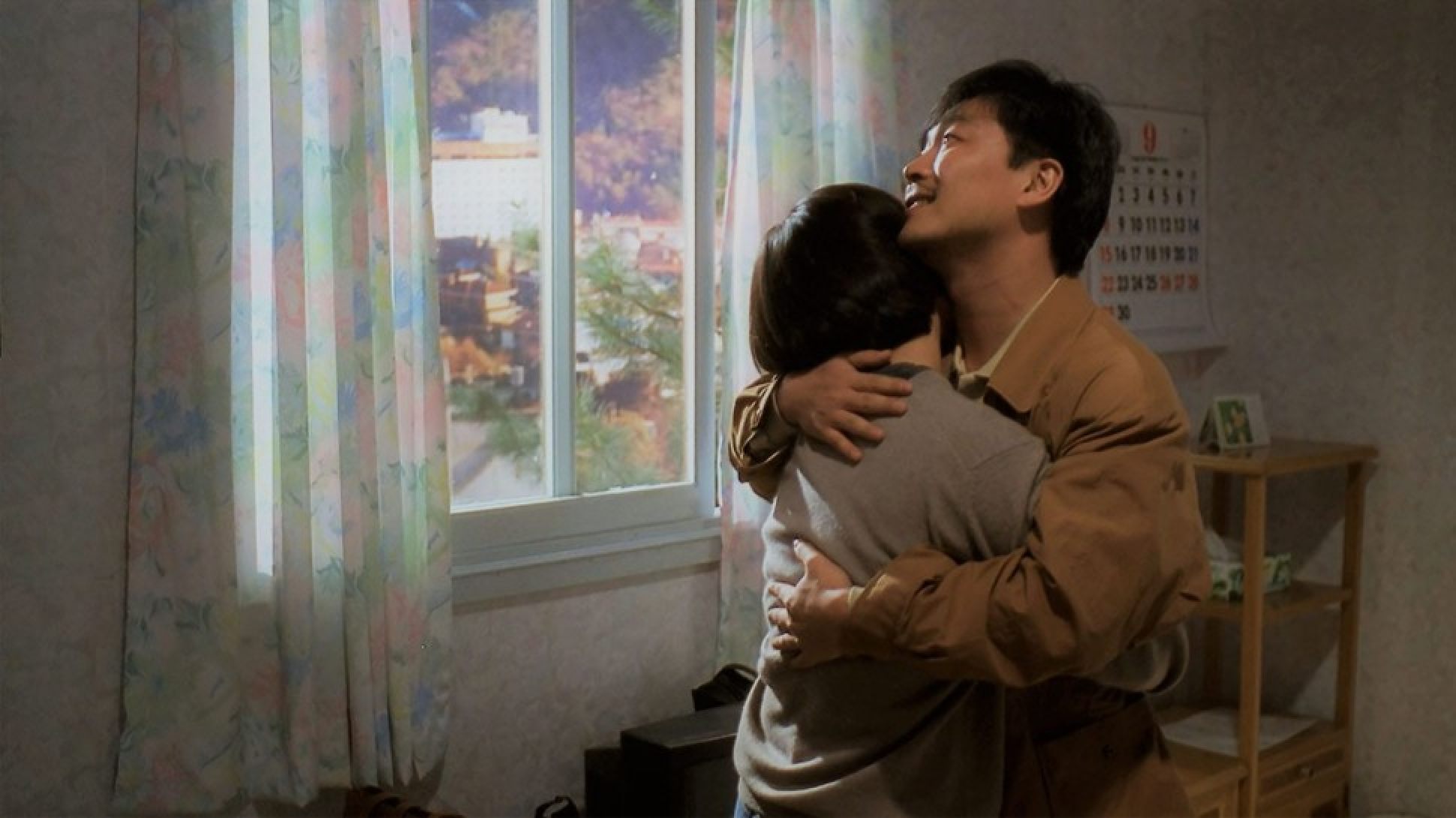To mark the 50th anniversary of its founding, the Korean Film Archive (KOFA) has published its third Top 100 Korean films list.
Voted on by 240 film professionals, including this writer, the list features far more recent films than past editions, as well as a big jump in the number of films by women filmmakers ranked.
Below we present the Top 10 on KOFA’s list. The rest of the list, available on the KMDB website (in Korean for the moment), is listed chronologically.
10. The Day a Pig Fell into the Well (1996)

Most voters chose his first film, The Day a Pig Fell into the Well, which is incidentally the first film of celebrated actor Song Kang-ho as well.
Although in many ways the least typical Hong film, his debut features many of the hallmarks of his subsequent body of work.
Hong’s second film, The Power of Kangwon Province, also made the list.
=8. Decision to Leave (2022)
A surprisingly recent addition to the list, the technically masterful Decision to Leave finds director Park Chan-wook at his most playful and exacting.
Featuring Park Hae-il as a homicide detective and Tang Wei as the inscrutable murder suspect he becomes obsessed with, the film is a diamond of a romantic thriller, full of parallel images and symbols.
=8. Christmas in August (1998)
A rumination on the connections we form in life and the memories we leave behind when we die, Hur’s debut film is a tender and affecting film about death which lingers in the mind long after watching it.
7. Poetry (2010)
Featuring the late actress Yoon Jung-hoo in her final role – she came out of retirement for it – Lee’s film tells the story of a woman who starts to take a poetry class as she grapples with the despicable actions of her grandson.
Lyrical and devastating, the film is for many the crowning achievement of Lee’s illustrious career.
6. The March of Fools (1975)
A countercultural masterpiece made under an oppressive political regime, The March of Fools is the most fondly remembered among the films of director Ha Gil-jong, who died in 1979 at the age of only 37.
His film tells the story of young university students whose dreams of the future are foiled by a deeply fraught society. The film ends with what is perhaps the most iconic kiss in Korean cinema.
5. Oldboy (2003)
In the role of a lifetime, Choi Min-sik plays a man who is abducted and imprisoned for 15 years, only to be released and given five days to figure out why this happened to him.
From its grandstand hammer fight scene to its shocking denouement, few films have had such a visceral impact.
4. Aimless Bullet (1961)
Often described as classic Korean cinema’s answer to Italian neo-realism, director Yu Hyun-mok’s Aimless Bullet depicts the struggle of an accountant suffering from toothache as he attempts to take care of his destitute family in post-Korean war Seoul.
Strikingly shot and thought-provokingly bleak, this poignant film was initially banned, only to be granted a release years later, at which point it was justly celebrated for being the masterpiece that it is.
3. Parasite (2019)
A scathing social parable laced with humour and violence, the film follows a poor family latching on to a rich one, as its members find employment in a hillside mansion one by one, but the secrets do not stop there.
2. Memories of Murder (2003)
Song Kang-ho and Kim Sang-kyung play detectives from different sides of the tracks trying to get to the bottom of an unsolvable series of rural murders in a film that brilliantly upends the codes of the American crime procedural.
A thriller that combines art and commerce, Memories of Murder is probably the film that has most influenced today’s Korean filmmakers.
1. The Housemaid (1960)
Retaining its spot at the top of the list, The Housemaid is the signature movie of filmmaker Kim Ki-young, a noted influence on the works of Bong Joon-ho and Park Chan-wook, among many others.
In this twisted noir melodrama, a bourgeois music professor hires a housemaid, who slowly tears his family apart as she begins to take over his middle-class household.
The blistering story was potent enough for Kim to remake it twice, as Woman of Fire (also in the Top 100) and Woman of Fire ’82, and it also serves as a key reference for Parasite.

